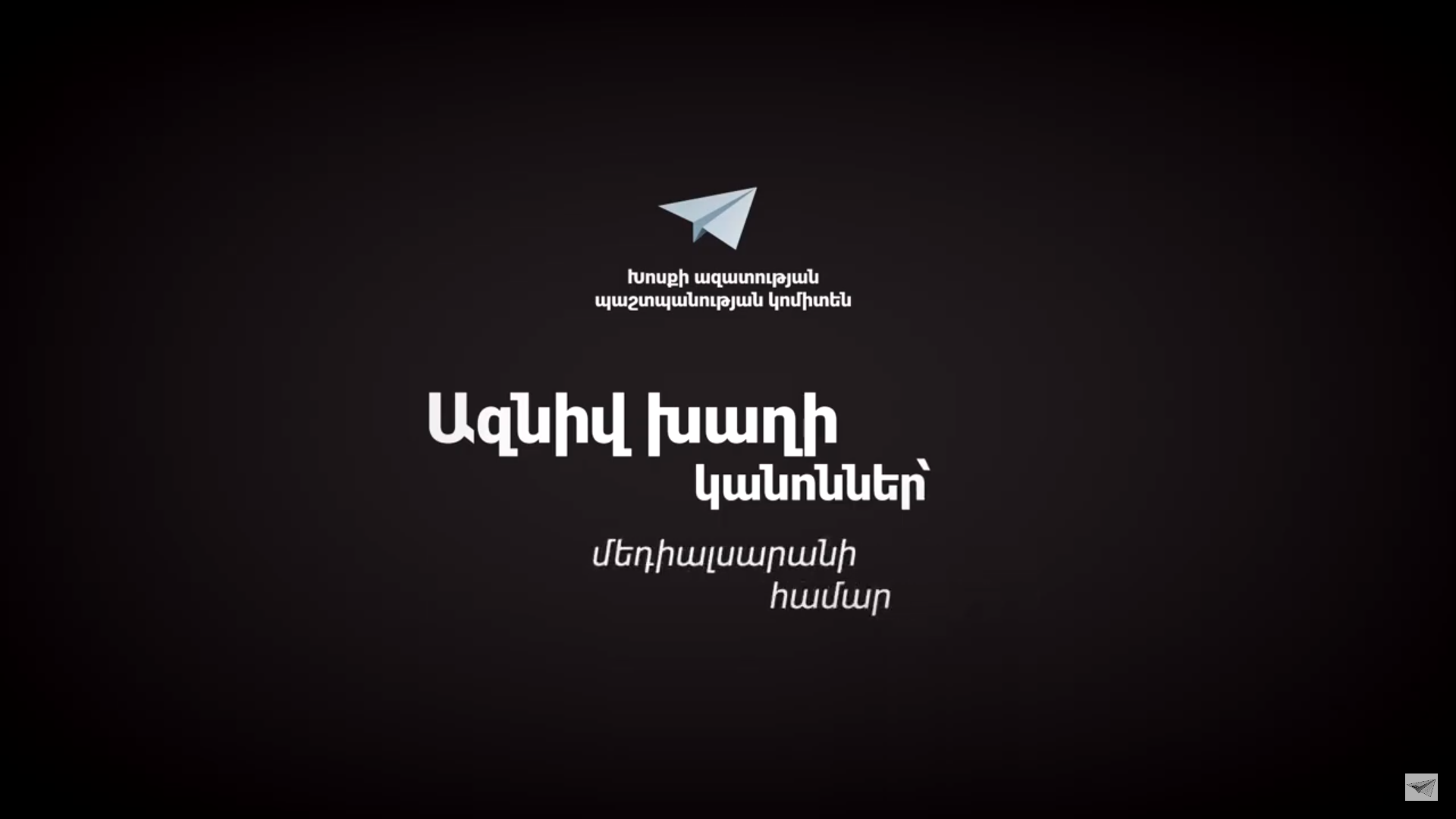The RA Law on the Mass Media, which had been adopted in 2003, has not so far obstructed the work of any media outlet. Mesrop Haroutyunyan, a media expert believes that this is an assessment indicator for any legislation. Yet, a question arises whether the consumer’s right to know what interests this or that media outlet serves is protected by law.
The Law on the Mass Media has several gaps used especially by the online media. First, Article 11 of the Law foresees publishing of the baseline data (address, telephone number, name of the legal person, the person responsible for the issue, etc.), a requirement, which also applies to ‘the media outlets issued on a physical carrier’ and the broadcasters. At the beginning, the phrase ‘physical carrier’ applied to the traditional media. In 2003 the online media were not as advanced as today. Even today these provisions are not applied by them. Meanwhile, according to experts, it does not matter what a physical carrier looks like.
‘An online platform is the same media outlet on a different carrier,’ clarifies Mesrop Haroutyunyan. ‘When there is a problem about the content of this or that website, you cannot even find the address in order to provide clarifications, nor the legal person to sue them. A number of media organisations have for years insisted on the need to amend the problematic Article 11. Rather than forcing, there is a need to put forward conditions before media outlets: if you want to have your journalist accredited, you must publish your issue data. Otherwise, they will not be accredited.’
According to the international ALEXA ranking, out of 45 Armenian media websites, only 3 have complete baseline data. 37 websites do not have various requisite data. In 2 websites only the e-mail is displayed, in 1 – only the address and 2 websites display no baseline data at all. 35 out of 45 websites do not display the name of the founder. Therefore, the founders of the websites avoid providing the audience with complete baseline data about their platforms.
What are the sources which generate the financial resources of the websites? The question is quite valid, especially now when the media sector undergoes reorganisation depending on political and financial camps. In the past, there were serious debates between the field experts as to why a media outlet must disclose its financial sources, and those who worked on the law worded Article 12 in the following terms: ‘Anyone engaged in media activities must prior to 31 March of the current year publish under the heading ‘Annual Report’ the financial report of the previous year in connection with the activities of that particular media outlet, indicating the gross revenues and the share of donations in them.’
However, today Mesrop Haroutyunyan believes that the requirement of the law is not sufficiently strict: ‘Maybe there is a need to find stricter requirements concerning the transparency of financial sources. If the sources of funding are transparent, the consumer will understand the interests involved. If it is written that this media outlet is completely funded by this or that oligarchic entity, then it is clear that the outlet serves the interests of that entity. The transparency of financial sources is one of the honest rules of the game vis-à-vis the consumer.’
According to Aram Abrahamyan, editor-in-chief of ‘Aravot’ daily, our readers are sufficiently advanced to differentiate between those who write on order and those who do not. ‘Any taxi driver may tell the difference. Moreover, even if it is known that the owner or the patron is Poghos or Petros, there is no guarantee that in fact, it is not Kirakos. The owner must be disclosed to the reader whereas the identity of the funder may be formal. The reader either accepts the fact of not writing upon an order, of being independent or not.’ The financial resources are not very important to the reader: whether I inherited the money with which I support the newspaper from my grandma, whether I write on order or whether this is my choice.’
Mher Arshakyan, journalist and publicist believes that it is important for the reader to know where the wind is blowing from when the media outlet is speaking: ‘A media outlet, which already exists, whether online or paper-based must be accountable to its reader. That is a good orienting point for the reader.’ Moreover, according to Mher Arshakyan, there is a need for liability mechanisms for those who do not publish reports. However, this must not be perceived as intimidation. ‘Without the threat of a baton, no one is in need of transparency. Therefore, there should be a liability mechanism. A media outlet must understand that a failure to publish a report does not speak of its freedom but irresponsibility.’
Boris Navasardyan, President of Yerevan Press Club believes that any citizen has a right to know which is the source feeding the journalist and accordingly decide to trust him/her or not. For example, our legislation foresees that an owner cannot have more than one television or one radio, but there are no mechanisms for checking this: ‘The same person may create several companies. We have such a practice when there are several companies in one holding and the owners are the same physical persons, which is a violation of law.’
The media experts continue the discussions on the possible legislative regulations of the ownership and funding sources of the mass media. Once their recommendations are finalised, they will be submitted to the parliament.
HASMIK BOUDAGHYAN
CPFE expert






















































